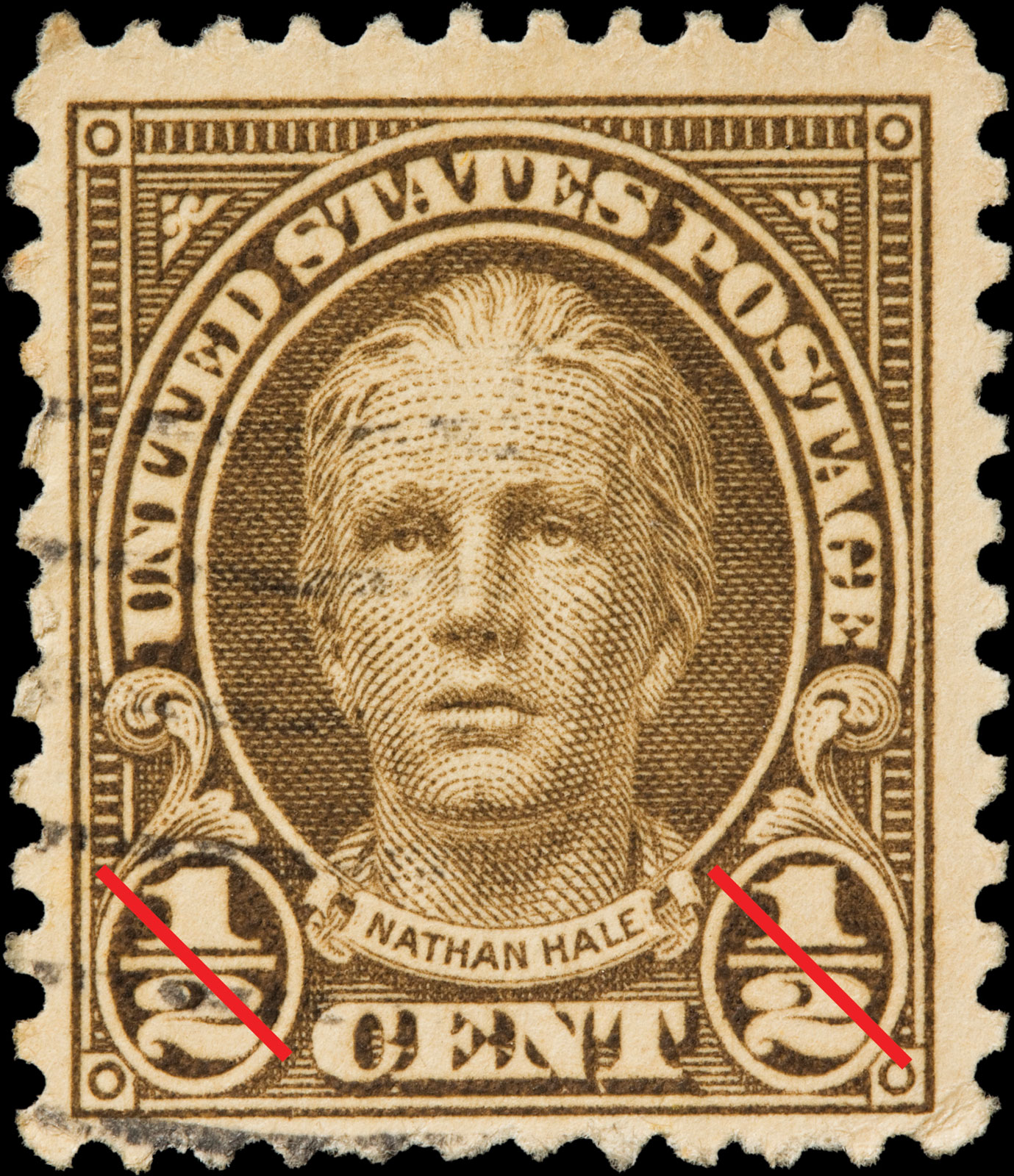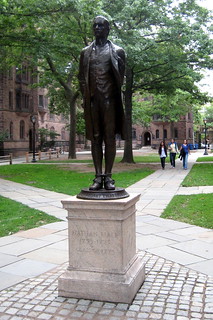Nathan Hale
Nathan Hale was a Captain in the 19 regement for the Continental Army who volunteered to be a spy on the British lines.
Nathan Hale was born in Coventry, Connecticut on June 6, 1755. He was blue-eyed, tall, with light brown hair. The son of Elizabeth Strong and Richard Hale, Nathan was a weak baby and was not expected to live. However, as he grew he was exceptionally good at sports. He also did well in school. He was neatly dressed and a favorite of the young women in his home town though never got married. Nathan entered Yale University in 1769 and graduated in 1773. After his graduation, he got a job as a schoolmaster.
During the War
In 1775 Hale answered George Washington's request for recruits by entering into the Connecticut militia in the Seventh Connecticut Regiment as a first lieutendant under Colonel Charles Webb. Eventually he transferred to the Continental Army in the Nineteenth Regiment as a captain in 1776.
As the Battle of Long Island came and the Americans were defeated, Washington established the Rangers, a unit of soldiers made to learn British plans. The group of soldiers, "Knowlton's Rangers," were named after Lieutenant Colonel Thomas Knowlton. Knowlton decided upon 120 men, including Nathan Hale, to join the Rangers. George Washington was in need of a spy to go behind the British lines. Their assignment was to determine where the British were going to attack next and assess the British troop's strength. They would be disguised as an everyday citizen. Knowlton asked once and no one answered his call, but the second time Hale volunteered for the mission.
He dressed in civilian clothes, and with his diploma from Yale, he was to act as though he was a schoolmaster looking for work. On September 12, 1776 he left the camp and was carried by boat to Long Island. He was initially undetected. Nathan went around the British areas of control in Long Island, made illustrations of British defensive positions, and counted the numbers and special soldiers he saw. He kept these records in his shoes and made plans to return the documents to Washington. Luck was not with him, though, for on September 20, New York City was set on fire. When the fire was put out, one fourth of the buildings in the city were burned past repair. The British were suspicious of the Americans for setting the city on fire, so they were on a search for the arsonists. Out of the suspious people they took in Nathan Hale was one of them. He was taken in to be hanged the next day.
On September 22, Nathan Hale was taken out to the gallows. He turned to the British soldiers who had come to see his hanging, and said "
"I only regret that I have, but one life to lose for my country."
~ Nathan Hale
“Patriot Nathan Hale Was Hanged.” Americas Library, www.americaslibrary.gov/jb/revolut/jb_revolut_hale_1.html#:~:text=%22I%20only%20regret%20that%20I,for%20spying%20on%20British%20troops.

Nathan Hale U.S. Postage Stamp
Britannica, The Editors of Encyclopaedia. "Nathan Hale". Encyclopedia Britannica, 18 Sep. 2020, https://www.britannica.com/biography/Nathan-Hale. Accessed 24 February 2021

Statue of Nathan Hale at Yale University.
Gobetz, Wally. “CT - New Haven - Yale University: Nathan Hale Statue.” Flickr, 2007, www.flickr.com/photos/wallyg/1244883717/in/photostream/.